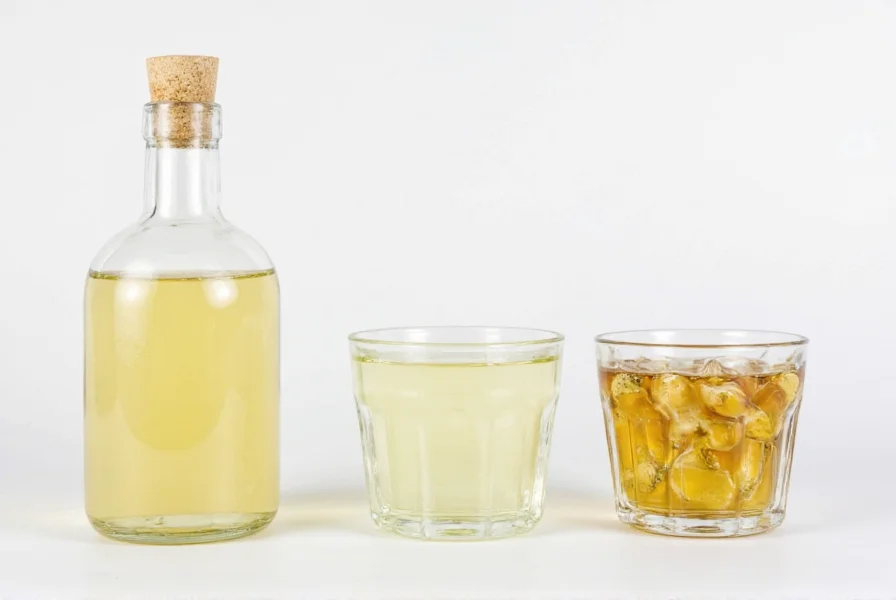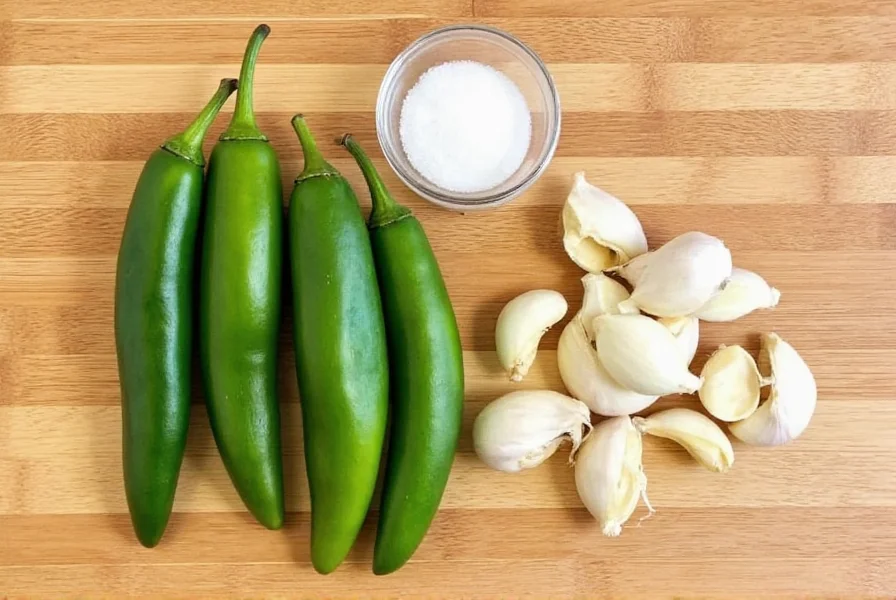The Science Behind Distilled White Vinegar
Distilled white vinegar undergoes double distillation to remove impurities, resulting in a clear liquid with standardized 5% acetic acid concentration. Unlike fruit-based vinegars, it lacks residual sugars or complex flavor compounds. This purity makes it uniquely functional in cooking where color preservation and predictable acidity are critical. The USDA FoodData Central confirms its composition: 95% water, 0 calories per 100g, and consistent acidity essential for food safety in preservation.
| Vinegar Type | Acidity Level | Color Impact | Best Cooking Applications |
|---|---|---|---|
| Distilled White Vinegar | 5% acetic acid | None (clear) | Pickling, marinades, sauce balancing |
| Apple Cider Vinegar | 5–6% acetic acid | Light amber | Salad dressings, braises, chutneys |
| Wine Vinegar | 6–7% acetic acid | Pale yellow | Reduction sauces, deglazing, gourmet dressings |
Source: Comparative data synthesized from USDA FoodData Central and Serious Eats' vinegar analysis

When to Use Distilled White Vinegar in Cooking
Reach for distilled white vinegar when:
- Pickling vegetables – Its neutral pH (2.4–3.4) prevents browning in cucumbers, onions, and peppers while ensuring crisp texture (Serious Eats)
- Tenderizing proteins – Add 1–2 tablespoons to marinades for chicken or pork; the acidity breaks down fibers without overpowering flavors
- Correcting rich sauces – Balance tomato-based sauces with 1 teaspoon per cup to cut sweetness without adding fruit notes
- Cleaning produce – Dilute 1:3 with water to remove residues from leafy greens
When to Avoid It: Critical Limitations
Do not use distilled white vinegar for:
- Delicate sauces – Its sharp acidity overwhelms subtle flavors in hollandaise or cream-based sauces
- Raw applications – Uncooked vinaigrettes benefit from fruit vinegars' complexity; white vinegar tastes harsh undiluted
- Alkaline-sensitive dishes – Avoid in recipes with baking soda (e.g., some cakes) where uncontrolled reaction occurs
- Long-term storage of herbs – Causes rapid color degradation in basil or cilantro compared to milder vinegars

Quality Verification: Avoiding Market Traps
Food-grade distilled white vinegar must meet FDA standards for culinary use. Verify quality by:
- Checking labels for "5% acidity" and "for food use" – industrial-grade vinegar contains harmful additives
- Rejecting cloudy products – indicates bacterial contamination ("mother" formation)
- Confirming ingredient list shows only "water and acetic acid" – no sulfites or caramel coloring
Bon Appétit notes that premium brands like Heinz or Spectrum undergo additional filtration for consistent pH. Store unopened bottles up to 2 years; refrigerate after opening for 6-month freshness (Bon Appétit).
Debunking Common Misconceptions
Misconception: "Distilled white vinegar is too harsh for cooking."
Reality: When properly diluted (e.g., 1 part vinegar to 3 parts liquid), its neutral profile enhances rather than dominates. Serious Eats testing confirms it's preferred for pickling where color preservation is essential.
Misconception: "All vinegars are interchangeable in recipes."
Reality: Substituting distilled white vinegar for wine vinegar in French dressing alters emulsion stability. USDA data shows acidity variations (5% vs 7%) significantly impact chemical reactions.
Everything You Need to Know
Yes, use a 1:1 substitution ratio for pickling as both contain 5% acidity (Serious Eats). Distilled white vinegar prevents vegetable discoloration better than apple cider vinegar, but lacks its subtle fruit notes. Avoid substitution in raw applications where flavor complexity matters.
No significant nutritional benefits exist beyond its role as a food preservative. USDA FoodData Central confirms it contains 0 calories and no vitamins. While some claim digestive benefits, clinical evidence is lacking. Always prioritize culinary functionality over unverified health claims.
Store in its original glass container away from light and heat. Refrigeration extends usability to 6 months post-opening (Bon Appétit). Discard if cloudiness develops or pH changes significantly. Never store in metal containers as acidity causes corrosion.
Excessive acidity or improper dilution causes texture breakdown. Use exactly 5% vinegar (USDA standard) and maintain a 1:1 vinegar-to-water ratio for cucumbers. Avoid boiling vinegar excessively – add it to hot brine off-heat. Serious Eats testing shows over-acidification dissolves pectin in vegetables.
Only use food-grade vinegar labeled for culinary purposes. Industrial-strength white vinegar contains sulfites unsafe for food contact. Dilute culinary vinegar 1:1 with water for surface cleaning, but never use near marble or stone surfaces where acidity causes etching (Bon Appétit safety guidelines).










 浙公网安备
33010002000092号
浙公网安备
33010002000092号 浙B2-20120091-4
浙B2-20120091-4